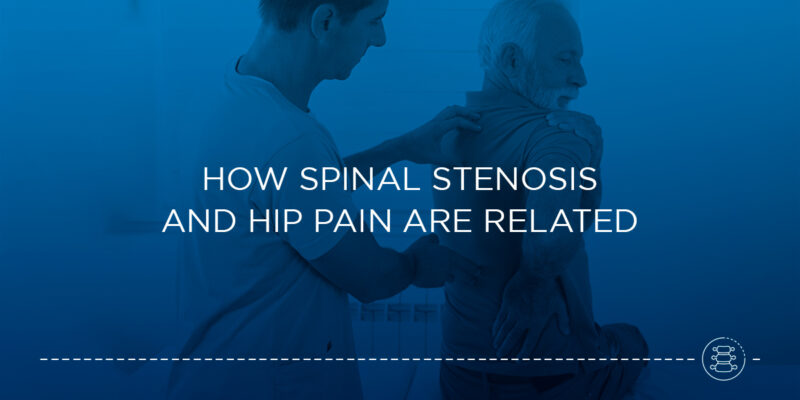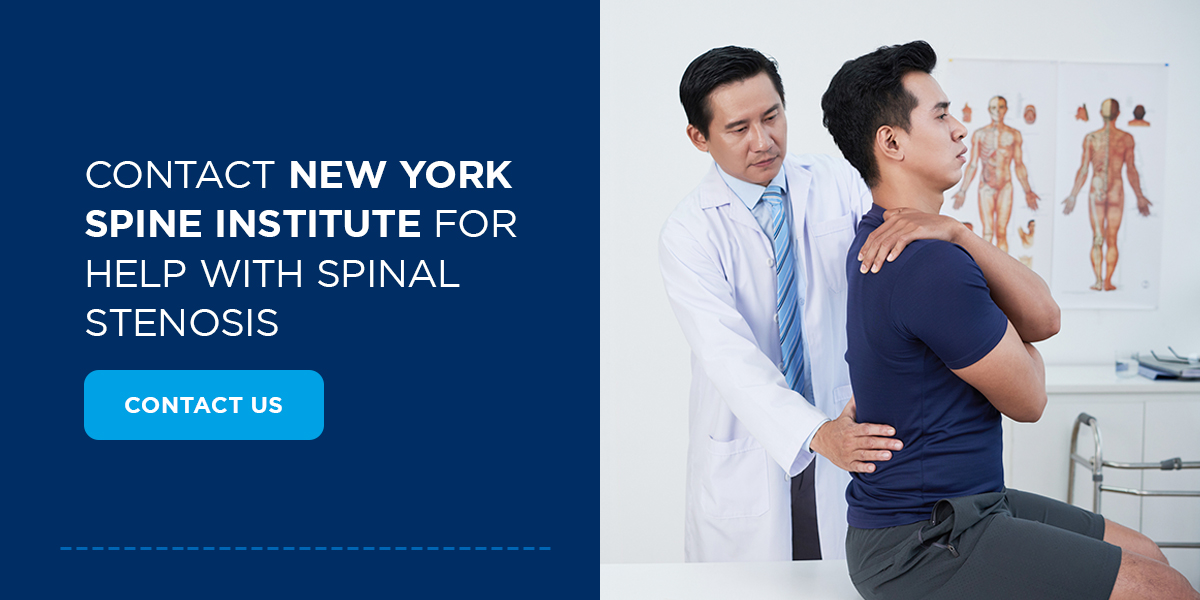

Just because pain is coming from your hip does not mean you have a hip-related issue. Instead, the pain could be coming from your back — specifically, from spinal stenosis. Continue reading to learn if this common misdiagnosis is relevant to your situation.
Spinal stenosis is a back condition where the open spaces in the spine narrow, putting extreme pressure on your nerves. This most often occurs in the lower back and neck.
Your spinal cord has stacked bones with discs between each vertebra from the tailbone to the skull, protecting the spinal cord in the spinal canal. Spinal stenosis is most often caused by osteoarthritis — or the gradual wearing down of the discs over time.
Other causes of spinal stenosis can be due to the following:
Early spinal stenosis may not have any symptoms, but they can gradually appear over time. Some symptoms include:
However, spinal stenosis symptoms are not always related to your back, legs or feet. Instead, you may feel pain in your hip.
The spinal cord is a bundle of nerves that runs through the vertebrae and extends to the muscles. When the space narrows — like with spinal stenosis — the nerves being compressed may be related to your hip joint. In this case, the nerves can become dysfunctional and create radiating pain in the hip.
Hip pain from spinal stenosis mainly occurs if there is a complication in the lumbar region of the spine. You can tell if your hip pain is spinal-related if the pain is relieved when sitting down and reoccurs when you continue walking.
The early stages of spinal stenosis can be treated with medication, such as nonsteroidal anti-inflammatories (NSAIDs) like muscle relaxers or acetaminophen. These medications are often paired with physical therapy, which may provide hip pain exercises to help strengthen your back and improve your mobility.
If the primary treatments are unsuccessful, there are surgical solutions. A laminectomy can remove one or more affected vertebrae to relieve pressure on the spinal cord. While this is the most common surgical procedure for spinal stenosis, your doctor will work with you to find the right solution for your situation.

If you are experiencing hip pain, it could be related to spinal stenosis. Contact New York Spine Institute for more information on our treatment options.